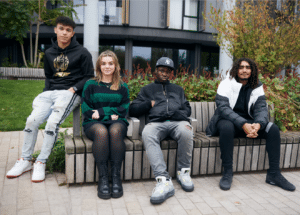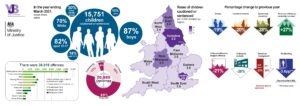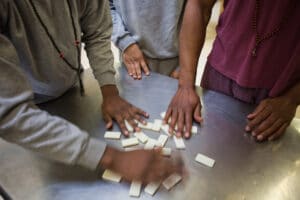Peer power experts
Areport by Peer Power for the Youth Justice Board looks at co-creation and participation in the youth justice system and provides a range of resources for practitioners. Based on surveys with practitioners and deep dive discussions, the report was produced by Peer Power experts by experience.
The report found that most practitioners were committed to working with young people on an equal basis but not all were confident in being able to work in a participatory way or faced barriers from their organisations which stopped them being as co-creative as they would like.
Five key themes
Five key themes emerged from this work and the report is organised around them. I reproduce these key findings in full below.
Relate and connect
- A trusted, caring relationship and connection between a child and practitioner is the most important thing and should always come first.
- Children who go to youth justice services shouldn’t have to tell their personal story in case it’s traumatic for them or others. They should have the freedom to talk about what they need to talk about.
- Practitioners should be trained to be aware and sensitive about trauma for children themselves and others.
Power and inclusion that you can see and feel
- All children should be included fairly and shouldn’t experience discrimination.
- We can be open about the power imbalance between adults and children, and different groups in society. We can decide together what we can do about it.
- Children who have been in youth justice services should be given paid opportunities like being a peer mentor or apprenticeships when they are older.
Strengths and positivity
- Practitioners should talk about children in a positive way about their strengths, skills and ability for positive change.
- Children who get involved with participation should learn about their skills and positive strengths, choose to do things they enjoy, and gain more leadership and life skills too.
- Practitioners and children should work together to decide how they can use their shared expertise and skills so that they can create positive change together.
"A child is not a problem to be fixed but a person – not to have stuff done to, but to work with."
Resources
- Everyone’s experience is valuable. Youth justice services should have a budget to pay for children to be involved in participation, not just for their time but also the expertise and knowledge that they bring.
- There should be a range of incentives or payments when children get involved in different types of participation that help services.
- People who’ve been in youth justice services in the past, like peer mentors, can be brought in to help measure how well participation is going.
- Good links with local youth services, charities and projects can help children go on to other positive things when they leave the youth justice service.
Rights and readiness
- Children and youth justice service practitioners should have training and coaching about children’s rights, empathy and participation to help them to be able to do it well.
- Youth justice service practitioners should make sure they are ready to listen and act on the views of children as equal partners.
- Youth justice service practitioners should be cared for, the same as children there are cared for and they should have their views listened and acted upon too as equal partners.
Conclusion
The recommendations from the report include appointing a dedicated participation lead within every Youth Offending Service, investing in lived-experience mentorship and getting peers together to encourage participation.
Thanks to Nicolas Lobos for kind permission to use the header image in this post which was previously published on Unsplash.








